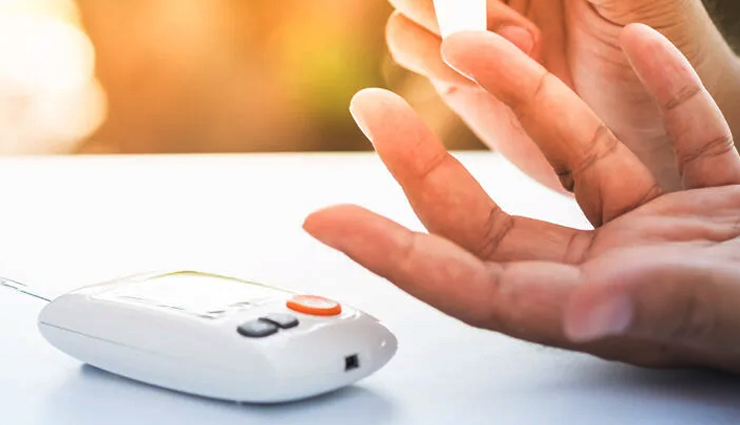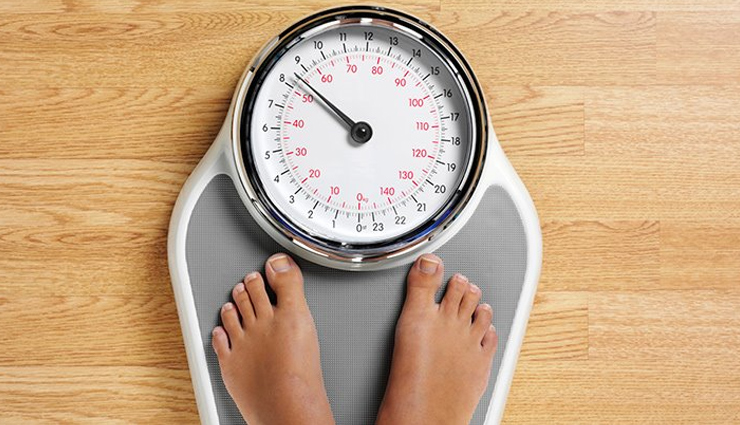- Home›
- Healthy Living›
- 7 Natural Ways To Manage Blood Sugar Level
7 Natural Ways To Manage Blood Sugar Level
By: Priyanka Maheshwari Wed, 06 Dec 2023 5:10:31

Glucose, also known as blood sugar, plays a crucial role in the proper functioning of the body. The challenge arises when blood sugar levels deviate from the designated healthy range. The prevalence of diabetes and prediabetes, chronic health conditions linked to elevated blood sugar, is increasing. Lifestyle and dietary choices can impact blood sugar levels, making it possible to naturally reduce them. Understanding the mechanisms leading to elevated blood sugar is vital for effectively lowering it.
Elevated blood sugar, or hyperglycemia, is characterized by a fasting blood glucose level exceeding 125 mg/dL after at least 8 hours of fasting and surpassing 180 mg/dL two hours after eating. Two primary factors contribute to high blood sugar:
- Insulin resistance: Your body exhibits reduced responsiveness to insulin.
- Inadequate insulin production: Your body fails to produce sufficient insulin.
Insulin, a hormone produced by the pancreas, regulates blood glucose levels. Various factors can disrupt insulin production or utilization, leading to diagnoses such as type 1 diabetes, type 2 diabetes, or gestational diabetes. Understanding these factors is crucial for comprehending how to effectively lower blood sugar levels.

# Make Exercise A Part Of Your Daily Routine
Engaging in regular exercise not only aids in weight management but also enhances your sensitivity to insulin. Studies indicate that physical activity can play a preventive role in insulin resistance. Improved insulin sensitivity results in reduced blood glucose levels, as cells become more efficient at utilizing sugar. Additionally, exercise facilitates the increased utilization of blood sugar by your muscles. Various forms of physical activity, such as brisk walking, swimming, weightlifting, running, cycling, hiking, and dancing, are examples of exercises that may naturally assist in regulating blood sugar levels.
A word of caution: Monitoring your blood glucose levels after exercising is advisable, particularly if you are taking medication to manage hyperglycemia. This monitoring can provide insights into how your blood sugar levels fluctuate in response to physical activity.

# Try A Low-carb Diet
During the digestive process, carbohydrates undergo breakdown into sugars. Insulin plays a pivotal role in regulating the utilization and storage of sugar. Excessive carbohydrate intake or issues related to insulin can lead to elevated blood sugar levels. Studies indicate that opting for meals with reduced carbohydrate content is among the most effective strategies for both lowering blood sugar and achieving weight loss simultaneously. Importantly, this approach not only yields short-term benefits but also holds the potential for sustained positive effects on blood sugar management.
Adopting a diet abundant in proteins, healthy fats, and vegetables while minimizing carbohydrate intake proved effective in regulating blood sugar levels for her.

# Load Up On Fiber
In the regulation of blood glucose levels, dietary fiber, particularly soluble fiber, proves beneficial. It acts by slowing down the digestion of carbohydrates and the absorption rate of sugar into the bloodstream. This deceleration helps prevent abrupt spikes in blood sugar levels. Moreover, soluble dietary fiber is linked to enhanced insulin resistance.
For individuals managing type 1 diabetes, a fiber-rich diet contributes to better blood sugar control and reduces the risk of sudden drops in blood sugar levels. Incorporating vegetables, fruits, legumes, and whole grains into your meals is advisable, given their high fiber content.

# Manage Your Weight
Studies indicate that a mere 7% decrease in body weight could potentially reduce the risk of developing diabetes by up to 58%. Furthermore, research suggests that integrating weight management and physical activity into lifestyle adjustments may be more effective in lowering blood sugar levels compared to a frequently prescribed diabetes medication.
Given the significance of waistline measurement in assessing diabetes risk, it is crucial to monitor your waistline closely. A waist measurement exceeding 35 inches for women and 40 inches for men may elevate the risk of hyperglycemia and type 2 diabetes.

# Stay Hydrated And Drink More Water
Maintaining hydration by drinking water consistently throughout the day can potentially prevent elevated blood sugar levels. Water facilitates the kidneys in eliminating excess sugar through urine. Research suggests that individuals who consume higher quantities of water are less prone to developing hyperglycemia. Replenishing with plain water or mineral water may serve as a method to decrease blood sugar levels and mitigate the risk of diabetes.

# Practice Stress Management
As per research findings, stress has a direct impact on blood glucose levels. Hormones like glucagon and cortisol, released during periods of stress, contribute to an elevation in blood sugar levels. A study involving students revealed that consistent engagement in activities such as regular exercise, meditation, and relaxation not only lowered stress levels but also resulted in a reduction in blood glucose levels. Moreover, there is some indication that stress reduction through practices like yoga and mindfulness meditation might address issues related to insulin secretion in individuals with chronic diabetes.

# Sleep Enough And Sleep Well
Poor sleep patterns and inadequate sleep can impact your appetite, disrupt insulin sensitivity, and elevate blood sugar levels. Sleep deprivation leads to reduced secretion of growth hormones and an increase in cortisol levels in the bloodstream, both of which play crucial roles in blood sugar regulation. Prioritize obtaining a sufficient quantity of high-quality sleep on a daily basis to support overall health and effective blood sugar management.





